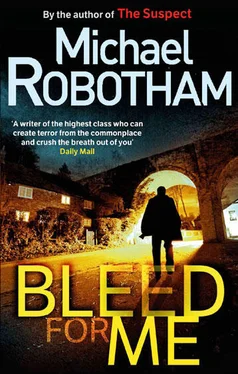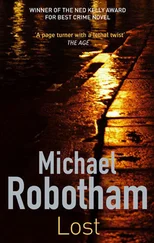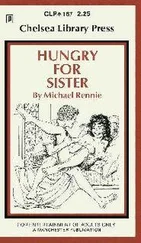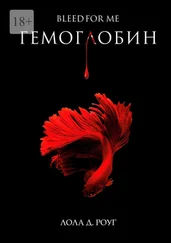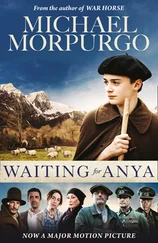Sienna nods.
‘What do you remember about the house?’
‘It had lots of old stuff. Furniture. Antiques, maybe. And one of those big clocks that bongs every hour. It was bonging when he was . . . when he was . . . you know.’
‘He took you upstairs?’
‘Yes.’
‘Were there paintings on the walls?’
‘Dead people in frames.’
‘What was he wearing?’
‘A dressing gown. And he had on a pair of those half slippers like my grandad wears. They flap up and down when you walk.’
‘Did he say anything?’
‘He was nice. He asked my name. When I told him he said, “I don’t suppose that’s your real name.” I knew I should have made one up.’
‘Did he tell you his name?’
‘No.’
Sienna is looking at me, gauging my reaction, wanting to know whether I think less of her now.
‘At first I thought he was just lonely, you know, like old and on his own, but then I found out he was married.’
‘How?’
‘I opened one of the wardrobes. I saw dresses and shoes. And I think he might have had a daughter my age because once he called me by a different name.’
‘What name?’
‘Megan.’
I know I could get more details from Sienna if I took her back to that night and did a proper cognitive interview, getting her to concentrate on the sounds, the smells, the images. But what would it cost her? I’d risk traumatising a girl who had been through enough.
Instead I choose another event: her weekend away with Gordon Ellis. It was in the autumn, not long after they went back to school.
‘Danny picked me up from school and dropped me at a lay-by on the A26. Gordon wanted to make sure nobody saw us together, so he made me lie down in the back seat under a blanket.
‘Where was Billy?’
‘He was next to me in his booster seat. He thought it was a game, like peek-a-boo.’
‘Did Gordon say where you were going?’
‘To the seaside; I think he said the caravan was in Cornwall.’
‘That’s a long way.’
Sienna shrugs.
I quiz her about the drive, but she can’t remember any road signs or place names. At one point Gordon said he was hungry and they stopped for fish and chips. He made Sienna wait in the car and took Billy with him.
‘I want you to close your eyes and think back. You’re in the car alone. Remember how it smelled and what you were wearing. You were excited. Anxious. Nervous perhaps. Gordon has gone to get the fish and chips. You’re waiting. What can you remember?’
‘There was a Lily Allen song on the radio.’
‘That’s good.’
‘And I forgot to tell Gordon to get me ketchup. I don’t like vinegar on my chips.’
‘Did you go and tell him?’
‘No. He told me to stay in the car.’
‘What about your mobile?’
‘He made me turn it off.’
‘What did you see outside?’
‘A picture-framing shop . . . another place with salamis in the window.’
‘What else?’
‘There was a pub over the road with a sign outside. It said, “Dogs Welcome.” I laughed and showed it to Gordon because I kept thinking of these dogs going in and ordering drinks at the bar.’ She opens her eyes and looks at me. ‘I don’t suppose that’s much use.’
‘You’d be surprised.’
I take her over the rest of the journey, plucking out small, often random details. She recalls certain songs on the radio and a billboard advertising a golf course and the smell of a poultry farm.
‘After that I guess I just fell asleep.’
‘For how long?’
She screws up her face in concentration. ‘Gordon said I had food poisoning.’
‘You must have woken up at some point.’
‘Gordon said I’d been sick on my clothes, which is why he took them off. “I brought pyjamas,” I told him, but he said I was sick on those too.’
‘You were naked?’
Sienna blushes and the details turn to dust in my mouth.
‘Tell me about the caravan?’
Her forehead furrows. ‘It had a bed and a little sink and a table that folded away.’
‘Did it have curtains?’
‘They were black and they were taped down.’
‘Did you ever manage to look outside?’
‘I woke up during the night. I was so thirsty. At first I was frightened because I couldn’t remember where I was and it was so dark.’
‘Where was Gordon?’
‘He must have gone out. My head was really heavy. I hooked my fingers beneath the tape on the windows and lifted a corner. I could see coloured lights and hear music. Kids were yelling. It was a fairground. It made me think of when I was eleven and we went to Blackpool. Lance won me a panda on the shooting gallery and I kissed a boy from Maidstone who Mum said was my cousin but he was just a friend of the family.’
Sienna smiles shyly.
‘This fairground, what rides could you see?’
‘I think it had a merry-go-round. I could see the coloured lights on the canopy. Is that important?’
‘It might be.’
The first pale suggestion of dawn has appeared on the horizon as a faint grey smudge. F. Scott Fitzgerald wrote that the real dark night of the soul is always three o’clock in the morning, but that’s not right. The darkest part of the night is just before dawn when we wake and peer through the curtains and wonder where the world has gone.
Headlights appear and disappear on the M32. A rubbish truck is reversing into an alley. A shift worker hurries along the footpath. The day begins.
Visiting the bathroom, I squeeze the last urine from my bladder and take another few pills, before going in search of Ronnie Cray. I find her pacing the vehicle lock-up with an unlit cigarette in her lips. Like an obsessive compulsive, she is full of tics and routines. She taps the cigarette against her wrist and sucks it again.
The Novak Brennan trial resumes this morning. I haven’t asked her what she’s going to do about the photographs and the jury foreman.
‘So what have you got?’ she asks expectantly. I feel an acid surge in my stomach.
‘Ellis isn’t going to crack. He’s been here before - in police custody, under suspicion, interrogated - he won’t be tricked into making admissions. He believes he got away with murdering his first wife, which makes him cleverer than the police.’
I glance at my notes. Scrawled at the top of the page I have the name: Gordon Ellis Freeman.
Age: thirty-six.
Above average intelligence.
Forensically aware.
Technologically confident.
A practised manipulator and predator who uses a high degree of planning and has the ability to execute those plans.
His motivation isn’t particularly sexual. His satisfaction comes from the hunt rather than the conquest. Bending a young girl to his will. Having her fall in love with him. Offering herself to him unconditionally.
Cray is opening the hinged lid of her lighter and shutting it with a flick of her wrist.
‘You can call Ellis a nonce or a pervert or a paedophile, but that doesn’t explain him. Unless you can grasp the intense pleasure he gets from taking an underage girl and using her as the culmination of his fantasies, you’ll never understand him. Sienna was the punctuation mark for a perfect statement.’
I pause and wait. The detective is still listening.
‘You have to explore his account of events in fine detail. Don’t let him waffle or prevaricate. Ask direct questions; seek times, dates and places. Woven together in the right way, he might slip up.’
‘But you don’t believe he will?’
‘No.’
‘Tell me when the good news is coming,’ she mutters.
‘Sienna is his weak link - the one element he can’t control. Right now, Ellis thinks nobody will believe Sienna because she’s a murder suspect and she’s only fourteen, but he’s worried. That’s why he tried to silence her.
Читать дальше
